ARC, WEF, Rwanda & Dodgy Dave's return
Some reflections on my research in light of from current events
I’ve been undertaking some historical research on propaganda theory in recent months, such as strategies used in the run-up to, during and after the Rwandan Genocide. But then coincidentally, I was confronted with multiple links to Rwanda in more pressing research last week. This was when I investigated Jordan Peterson’s launch of ARC. Then Rwanda was headline news this week, throwing even more context onto the disturbing situation in that country. So let me explain a bit here as maybe readers can help me with these puzzling pieces?
ARC and its Funders/Founders
First, ARC. This was regarding the (fake) launch event in London a two weeks ago, starring the talking head Jordan Peterson - whom despite my scepticism of his newly-minted project, has undoubtedly produced some valuable material for a lay audience. In particular, this podcast interview about the unethical pseudo-science roots of transgender ideology:
But that aside, my Substack-colleague
and I published this summary of some of our research yesterday, which includes some of the receipts of the direct link between ARC and WEF. So much for Peterson’s claim to being a ground-up ‘solution’ to WEF then?:So what? you may ask. Well WEF is heavily invested in Rwanda, not only in terms of it’s Government’s commitment to their Young Global Leaders (YGL) …
…but also in its infrastructure, its surveillance, its especially its healthcare and finance. Some of the details we cited in our article yesterday posted above, like the Prosperity Index (PI) which collates (Gallup) survey data about Rwanda’s economy for investors’ info. Kagame’s partnership with the WEF and the associated UN SDG Agendas is an integral part of his fame and fortune, to the point of almost ‘celebrity’ status. A look at his Tweets gives an example of his virtue-signalling to his fellow (African) leaders. His marketing has been skillfully manipulated, including $multi-million promotions of sporting events, the ‘Visit Rwanda’ slogan featuring on UK Arsenal football club’s kit.
Importantly, the Western political narrative upholds Kagame’s reputation in claiming he brought Rwanda out of ‘tribal warfare’, addressed the needs of a population traumatised and injured by the Genocide, and strategically led Rwanda into the 21st Century “Western” democracy that the world sees today. (Conveniently, Rwanda’s World Bank entry was recently updated to reflect that claim here).
But digging a little deeper into what life is like today in Rwanda, reveals some uncomfortable truths. As we hinted at yesterday, Human Rights groups have attempted for decades to raise awareness of the inhumane treatment of those who speak out against Kagame’s regime. Journalists are censored. Oppression of political dissent is common. And here we may discover more clues as to why the UK Government are so keen to find a place on Earth to send their refugees. So keen in fact that Sunak shockingly admits he is prepared to over-rule the well-established European Commission of Human Rights laws to get them there. As he stated here:
My impression of Rwanda from my reading
No, I haven’t been there, and I’m keen to hear from anyone who has. But we can do a little reading of informal, uncensored blogs like this one,
, which are often from missionaries (Rwanda has a large Catholic population) wanting to connect with the outside world. There are also plenty of YouTube posts, Tourist Board sponsored. Together with the more academic reading, these reveal some concerning truths about the contrast between legacy media’s version of Kagame’s country and the authoritarian reality.On the surface, the pedantic policy of banning of plastic bags from import into Rwanda could seem like a good idea. But what about banning used clothes too? What about those citizens living in extreme poverty, wouldn’t they benefit from some charitable donations? We posted images in our post yesterday from the Kigali Conference Centre where the WEF-puppet politicians meet. They enjoy their glasses of French champagne with their corporate banquets, inside grand mirrored dining halls with fancy water-feature sculptures. Outside the streets are immaculately clean, staff smile in landscaped grassed pathways where people can take the obligatory selfies. Next door is a Radisson Hotel.
But the propaganda can be deceptive. It seems that the Conference Centre is a set, like the Truman Show. Just off that main street tells us a different story. Many of the roads are unmade, requiring 4WD vehicles to gain access to houses which are simple corrugated-metal sheds with no reliable drinking water, sanitation or power. Rwanda is mountainous; rainfall is high and without proper drainage, flooding is common when houses can simply be washed away.
But hey, let’s smile and hop on a city EV bus with free wifi (sponsored by BigPharma advertising) to be taken to the other side of the city. Do you notice the numerous surveillance ‘speeding’ cameras everywhere? No? Maybe the massive posters plastered on sides of buildings praising Kagame for his wonderful leadership are normalised too? “We are so lucky.” some citizens often repeat to anyone who will listen. “Compared to the horrors in neighbouring DRC, malnutrition, disease, slavery in mines - we are so lucky to be here in Rwanda!” In some ways, that’s true.
Once a month there is a special national day in Rwanda where people are not allowed to work. Seriously. If you are found travelling on the pathways/roads without a valid permit, (“Papers, please!”) the police can prosecute you (and it sounds like prosecution is not recommended in Rwanda). The day is reserved for ‘community projects’ (what we would call here in New Zealand voluntary “working bees”), where neighbours are encouraged (and are apparently keen?) to help each other with building jobs or other chores, without pay. Is Rwanda a free democracy, or a totalitarian state? Remember Kagame has not allowed a fair election for nearly 30 years. This is how the majority of the 13 million people live:
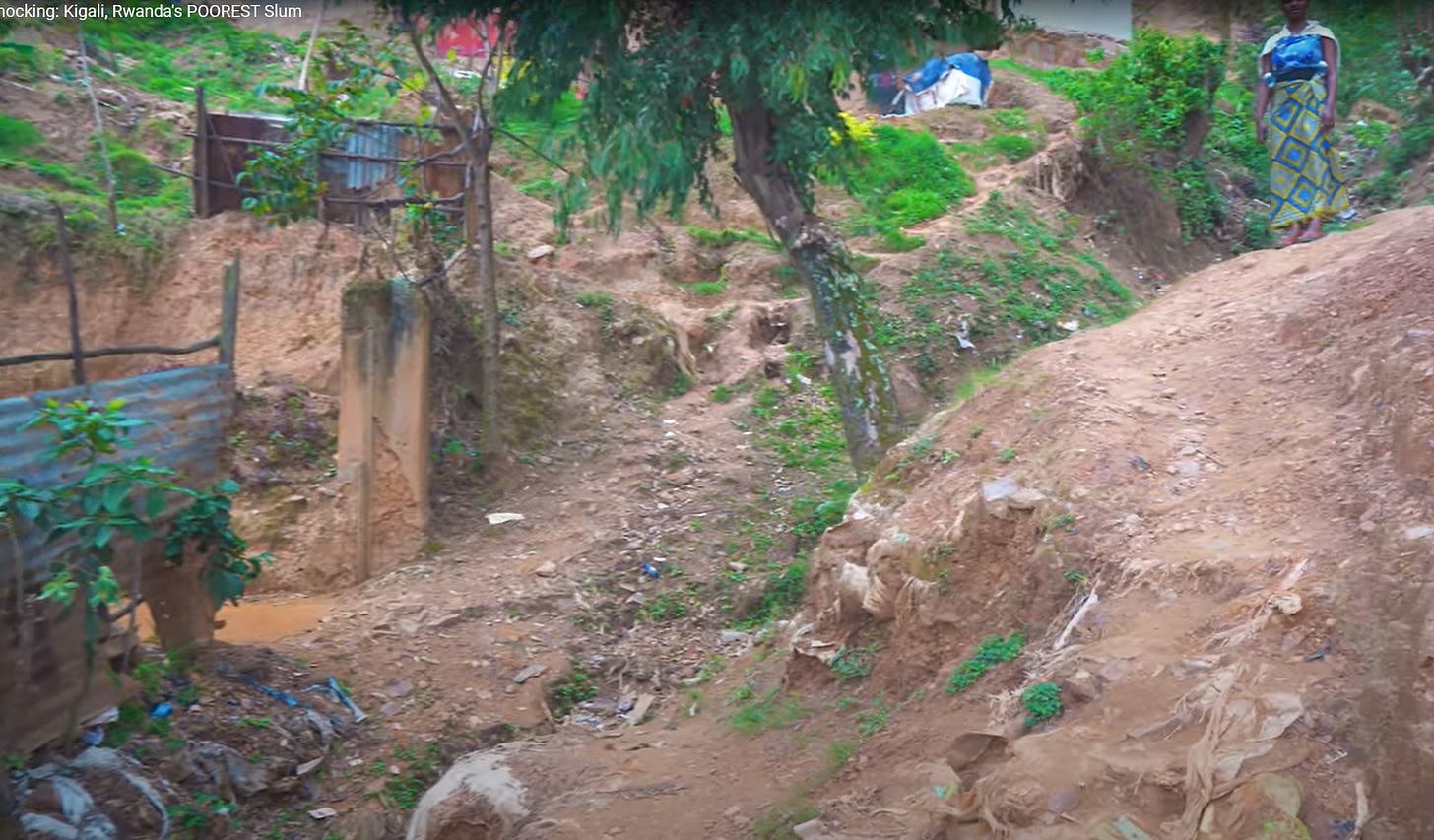
In every community is a ‘memorial’ of the 1994 Genocide. Sacred places that remind us all of our mortality: any passing Rwandan tourist would feel a sharp jolt with reality. How could a million people - including women and children - have ben slaughtered here? Was it really less than 30 years ago? What evil could drive friends and family members to take a machete to one another (Maybe they don’t ask the uncomfortable questions'- like where did all those thousands of machete’s actually come from)? No doubt 99% of those strangers don’t linger long in those dark, macabre places (who can blame them). Some maybe say a prayer for the lost souls and ask a few questions of the (well-paid) custodians.
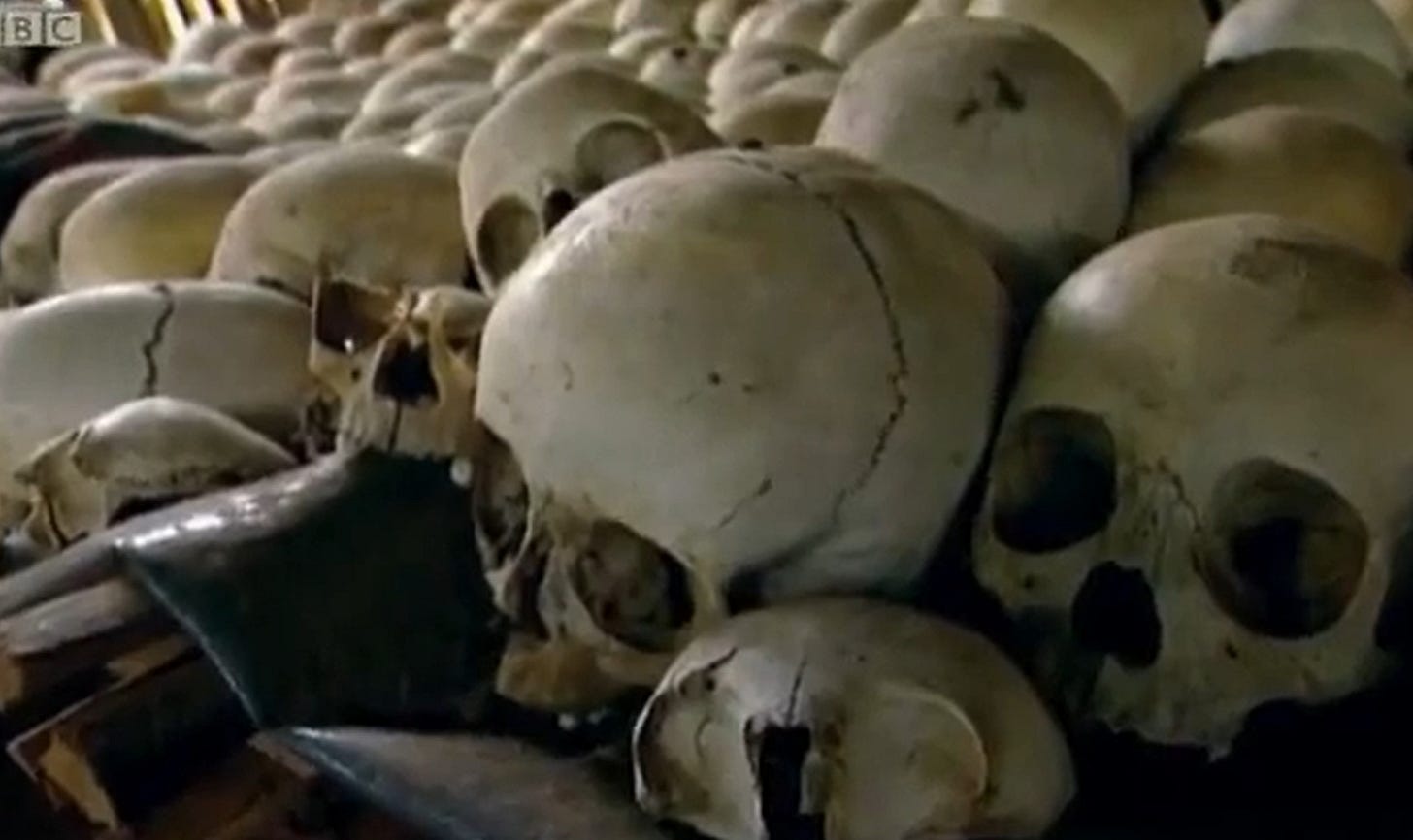
Tourists can then return to the sunshine, duty completed, and resume the relaxing business of being on holiday (and spending those valuable US$). Rarely does anyone ever ask whether any of the perpetrators were brought to justice for those crimes against humanity.
Stop the ‘Boats’?
Even ten years ago, when I was living in Southern England, it was clear that the nightly arrival of various floatation devices (you could hardly call them boats) was completely unsustainable for our already overly-populated nation. But even after Brexit, still they came. Those alluring White Cliffs of Dover can easily be scaled if you know the tides and where to land. And let’s be honest, who’s surprised? On the surface, the propaganda about the (free) NHS and welfare payments would be enough. Anecdotes from those who ‘make it through’ describe the proper brick houses (hotels, even), with drinking water in every tap and free wifi at street corners. The generous Government even provides free education and networks of food banks ensure no-one goes hungry. Paradise compared to….well, countries like Rwanda. Certainly compared to the DRC where some Rwandans are located. So it must be worthwhile all the effort to overcome the challenges to get into Britain.
Cue ‘Dodgy Dave’
Cameron’s return to British Parliament, and his Big Society Agenda seems predictable in the chaotic and unstable geo-political and economic environment. Let’s not forget his past scams:
If private and voluntary organisations are to fill the gaps left by a retreating state, it matters a lot how they behave and who they include. They all have boundaries – variously determined by kinship, law, status, geography, ethnicity, religion - which include some and exclude others. There is nothing in the plans for a Big Society to make sure that larger and more powerful organisations don’t exclude those who need help most, or monopolise the action, or flourish at the expense of others. (from an article about Big Society corruption, my emphasis)
The long-running policy failure of stopping illegal immigration has been pushed to the headlines at last. Why? British people have been subjected to intense psyops deliberately dividing communities and families. Unethical ‘leaders’ have abused their powers to twist the inherent tensions in Brexit, Covid, Ukraine, Israel …what next? As recession bites and the public are fed more and more stories about how the illegal (and legal) immigrants and refugees are arriving in Britain, night after night, of course tensions will increase. The NHS (like our healthcare system here) has broken, trust in Government is at an all-time low, so inevitably, resentment towards others perceived to have preferential treatment, increases. Sunak was never the answer, it didn’t matter what the question was.
But impact investment is the answer. According to the wealthy elite, that is. The WEF and partners like Legatum (ARC) have a plan ready, and the modelling to support it. (What do you mean the modelling was created at one of Legatum’s own academic institutions, of course it’s not biased.) All that’s needed is a Foundation with excess capital, and tax exemption status, with well-paid senior execs (it helps if they also have a position in Government), so they can invest in one of the UN SDGs. There are, after all, plenty to choose from, from new gas extraction plants, digital finance to healthcare chatbots, road infrastructure to data surveillance. There’s even satellite and space exploration for those ‘high risk’ investors. In fact, this promo video claims that foreign investment in Rwanda (after laws and taxes were eased) has risen from $8m in 2005 to a staggering $366m in 2018:
Maybe it’s true - after all, the money is just printed, right? I wonder what those planned British ‘refugee centres’ look like in Rwanda and where they will be located. Are they perhaps already built and that’s why the laws must be changed to allow entry? Who are/were the contractors and what equipment used? Maybe the Rwandans were employed to build it, if so, what were they paid and what health and safety precautions and PPE were supplied? I wonder what water and power source the centre will have?
There are still lots of unanswered questions, which the propaganda will undoubtedly filter out of the legacy media conversation about the UK/Rwanda Agreement. But the truth about Kagame will eventually be exposed, and the citizens and refugees there deserve to see accountability. Then maybe the British will see they have been lied to. Again.

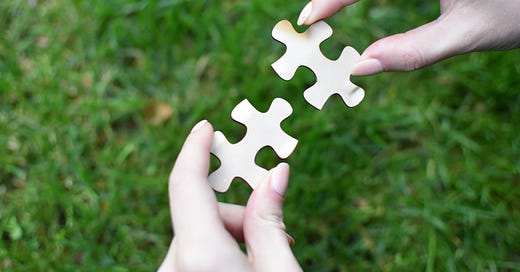




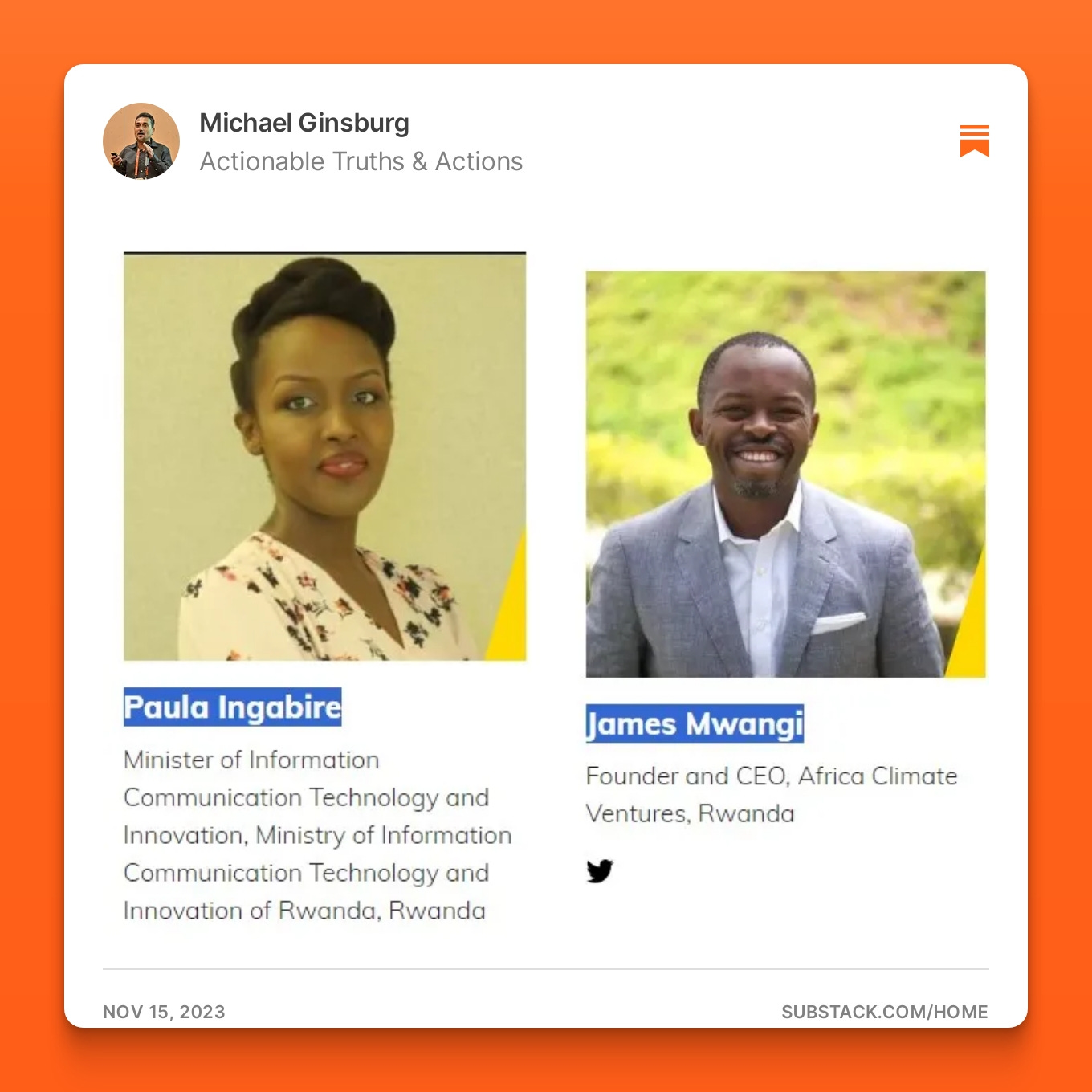

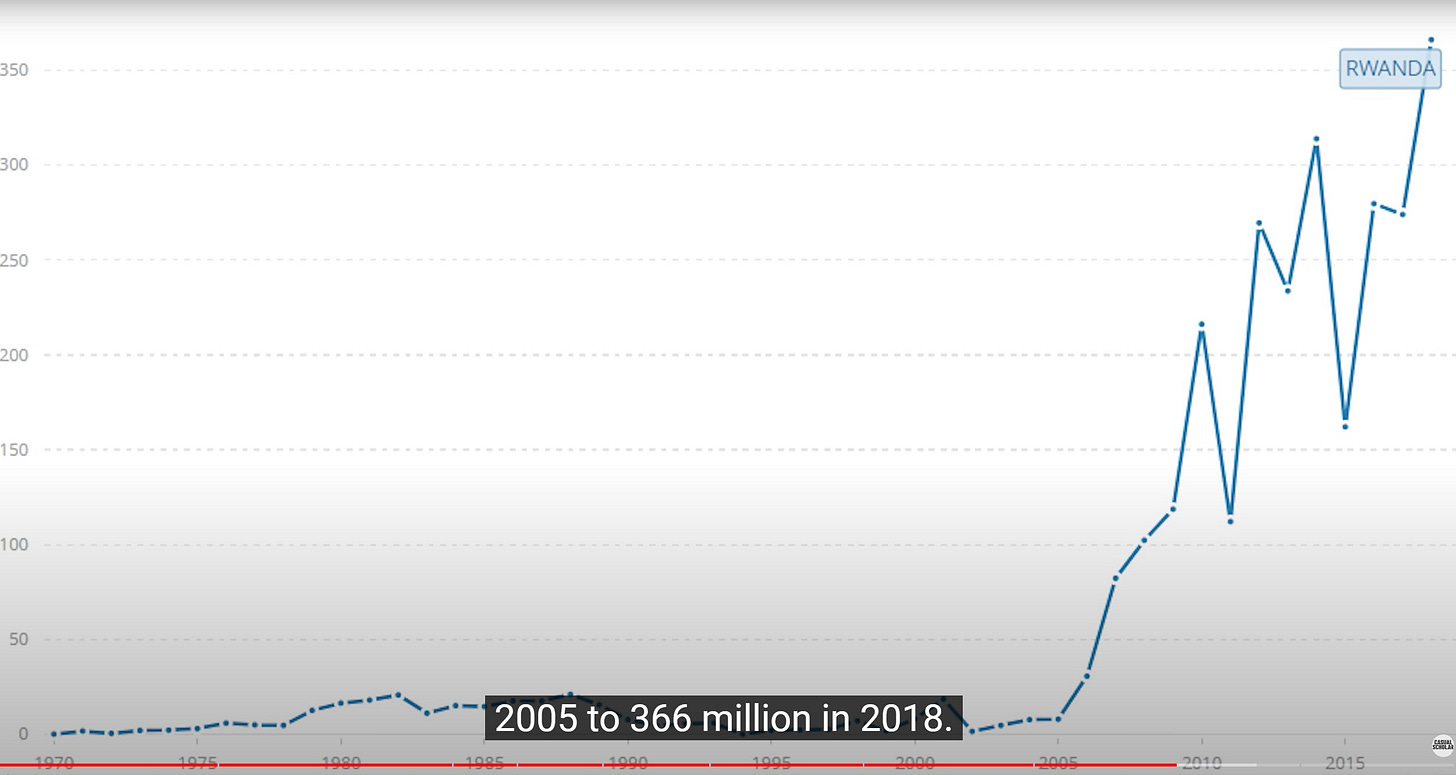
I was in Rwanda right after the genocide. I can't answer a lot of questions because I don't want to dox myself but I can say that you are basically on the right track. I can answer general questions.